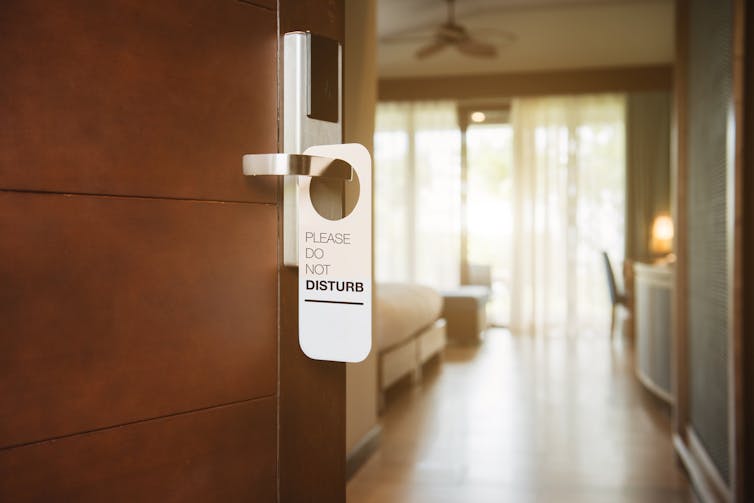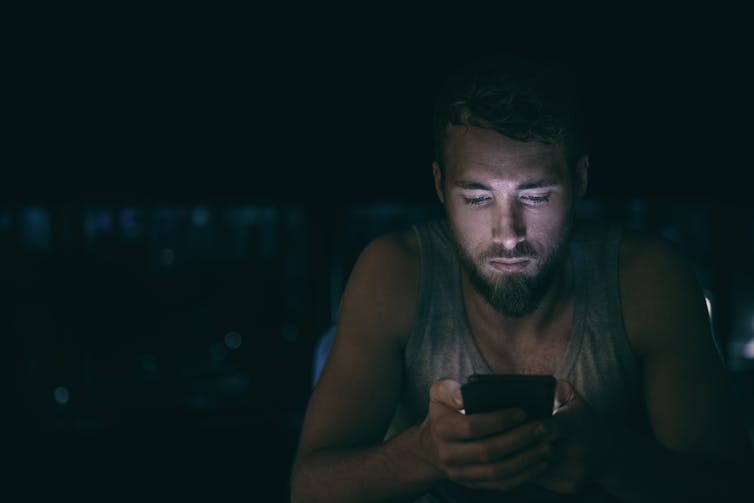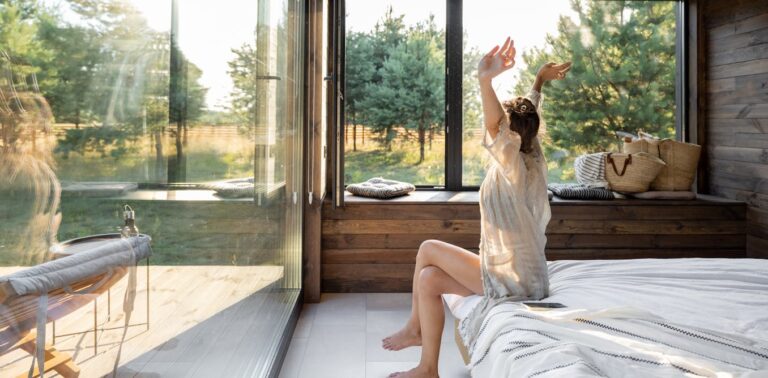Imagine arriving at your hotel after a long flight and being greeted by your personal sleep butler, presented with a pillow menu and invited to a sleep meditation session later that day.
Unpack in a room outfitted with an AI-enabled smart bed, blackout curtains, blue-light blocking glasses, and a weighted blanket.
While holidays are traditionally spent on activities and sightseeing — eating Parisian pastries beneath the Eiffel Tower, ice skating at Rockefeller Center in New York, lounging poolside in Bali or sipping limoncello in Sicily — “sleep tourism” offers holidays that are solely about getting a good night’s sleep.
This emerging trend is spilling over into the global wellness tourism industry, which is worth more than US$800 billion (A$1.2 trillion) worldwide and is expected to grow rapidly.
Luxury sleeping facilities and hotel sleep suites are popping up all over the world to help tourists get some much-needed rest, relaxation and rejuvenation, but do you really need to leave your home to sleep?
Not Enough
The rise of sleep tourism may be a sign of how chronically sleep-deprived we all are.
More than a third of Australian adults do not get the recommended seven to nine hours of sleep a night, and this lack of sleep is estimated to cost AUD45 billion a year.
Poor sleep is linked to long-term health problems, including poor mental health, heart disease, metabolic disease and death from all causes.
Do luxury hotels give you better sleep?
Many of the sleep services available in the sleep tourism industry are aimed at optimizing your bedroom for sleep. This is a core element of sleep hygiene, a set of healthy sleep habits that promote good quality sleep, such as sleeping in a comfortable bedroom on a good mattress and pillow, sleeping in a quiet environment, and relaxing before going to bed.
The more people who practice sleep hygiene, the better the quality and quantity of sleep will be.
Staying in a hotel is likely to provide you with an escape from all the stressors you encounter in your daily life (such as work pressures and caregiving responsibilities) as well as the nighttime sleep disturbances you may experience at home (construction work next door, restless pets, restless children), so you’re more likely to experience better quality sleep while traveling, regardless of the sleep features the hotel offers.

Leaving home also means leaving the chaos of home life. Makistock/Shutterstock
The science behind making up for lost sleep
In the short term, it can help you catch up on sleep. This happens, for example, when “sleep pressure” builds up in your brain after a short sleep. This term describes the strength of your biological urge to sleep. The higher your sleep pressure, the easier it will be to fall asleep the next night, and the longer you’ll be able to sleep.
But while getting more sleep the next day can reduce the stress caused by lack of sleep, it doesn’t reverse the effects that lack of sleep has on your brain and body. A night’s sleep is important for your body to recover and your brain to process the events of the day. While catching up on lost sleep on your days off may make you feel more relaxed, it’s no substitute for prioritizing regular, healthy sleep at home.
All good things come to an end someday, including vacations, and unfortunately, the perks of sleep tourism may come to an end too.
Our bodies don’t like to have fluctuating sleep schedules. The most common example of this is called “social jet lag,” where weekday sleep (waking up early to get to work or school) is very different from weekend sleep (staying up late and oversleeping). This can lead to a sleepy, grumpy start to the week on Monday. If you don’t come home with the intention of making sleep a priority, sleep tourism can happen as well.
So, you should keep in mind that it’s important to optimize your home environment to not only sleep well while on vacation, but also to get enough sleep consistently every night.

Good sleep hygiene doesn’t require a passport.
5 tips for a sleep holiday at home
An AI-powered mattress and an in-home sleep butler may be a dream, but these features aren’t the only ways to optimize your sleep environment and increase your chances of a good night’s sleep. Here are five ideas to help you start your night off right.
1. Avoid bright artificial lights at night (bright overhead lights, cell phones, laptops, etc.)
2. Make your bed as comfortable as possible with clean pillows and a supportive mattress
3. Use blackout curtains and keep the room cool to create an ideal sleeping environment
4. Establish an evening relaxation routine, such as taking a hot shower, reading a book, and drinking a “Sleepy Girl Mocktail” before bed.
5. The key to good sleep habits is consistency: Aim to go to bed and wake up at the same time, even on weekends.

